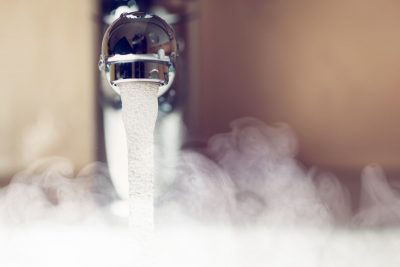What Type Of Water Heater Is Most Energy Efficient?

Water heating accounts for about 20% of a typical American household’s monthly energy bills. When it’s time to replace your old water heater, it pays to select the most energy-efficient unit that fits into your budget and has the right capacity for your needs. Use these tips to choose the most energy-efficient water heater for your South Hill, WA, home.
Consider the Efficiency of Water Heater Power Sources
Water heaters can be operated with solar, geothermal, electricity, natural gas, propane, or heating oil. Solar power and geothermal water heaters use a minimal amount of fossil fuels, so they’re an environmentally-friendly choice. Natural gas and propane are the most energy-efficient fossil fuel sources of power for water heaters. Electricity follows behind natural gas and propane when it comes to the energy efficiency of the power source. Heating oil is the least-efficient source of power for a water heater. You’ll also need to consider the availability and feasibility of the power source. Solar power may not be a cost-effective investment in South Hill, and geothermal may have a long payoff period. Natural gas may not be available in all locations. Propane and heating oil have variable prices. Propane and heating oil also requires you to have an on-site storage tank. Electricity is widely available, but it costs more per unit than most other power sources for water heaters.
Learn About Conventional Storage Tank vs. Tankless Water Heater Efficiency
Conventional storage-tank water heaters constantly use some energy to maintain a supply of hot water in the tank. An on-demand water heater has no storage tank. It only uses energy when you turn on a hot water tap. Overall, an on-demand water heater is more energy-efficient than a conventional water heater with a storage tank. However, you also have to consider the power source. A conventional water heater powered by solar or geothermal energy will have a lower energy use than a tankless water heater powered by natural gas.
Discover New Heat Pump Water Heater Technology
New heat pumps have the ability to transfer heat into the water. Ground-, water- and air-source heat pumps are available to do this. These systems use a second heat exchanger or coil to transfer heat into the water. In the summertime, the heat that would be transferred out of your home to the outdoors can instead be transferred to the water heater. This makes the heat pump’s cooling function more energy-efficient. In the wintertime, the heat pump will use heat from the ground, air, or an outside water source to transfer heat to your water heater. However, this can result in the heat pump creating a cooling effect in your home. The portion of your heat pump that’s dedicated to warming your home may have to work harder in order to compensate for this.
Look Into Energy Star Certification
The Department of Energy and Environmental Protection Agency combined their resources to create the Energy Star program. Energy Star-certified water heaters use 15% to 30% less fuel to heat water compared to a non-certified unit with the same capacity. When you want an energy-efficient water heater, it’s a good idea to look for one with Energy Star certification. There are Energy Star-certified tankless and conventional storage-tank water heaters. There are also Energy Star-certified electric, gas, propane, and heating oil water heaters.
Use These Simple Solutions to Improve Your Water Heater’s Efficiency
There are several actions you can take to make sure that your new water heater delivers the promised level of energy efficiency. Schedule an annual maintenance visit for your water heater. Regardless of which type of water heater you pick, an annual maintenance visit ensures that the system operates at its peak performance level. If you choose a storage tank style of water heater, consider an insulation blanket for it. Avoid setting a water heater’s temperature higher than 120 degrees Fahrenheit. Higher temperatures could lead to scalding or burn injuries. Give all water heaters at least three feet of clearance in all directions for optimal airflow.
When it comes to energy-efficient water heaters, Puyallup Heating & Air Conditioning is the trusted installation team. We’re also ready to provide you with reliable heating and air conditioning maintenance, repair, and installation services. Our air purifiers help you maintain good indoor air quality and a cleaner, healthier home. To learn more about choosing an energy-efficient water heater, get in touch with us at Puyallup Heating & Air Conditioning today.
Tags: Energy Efficiency, Type


